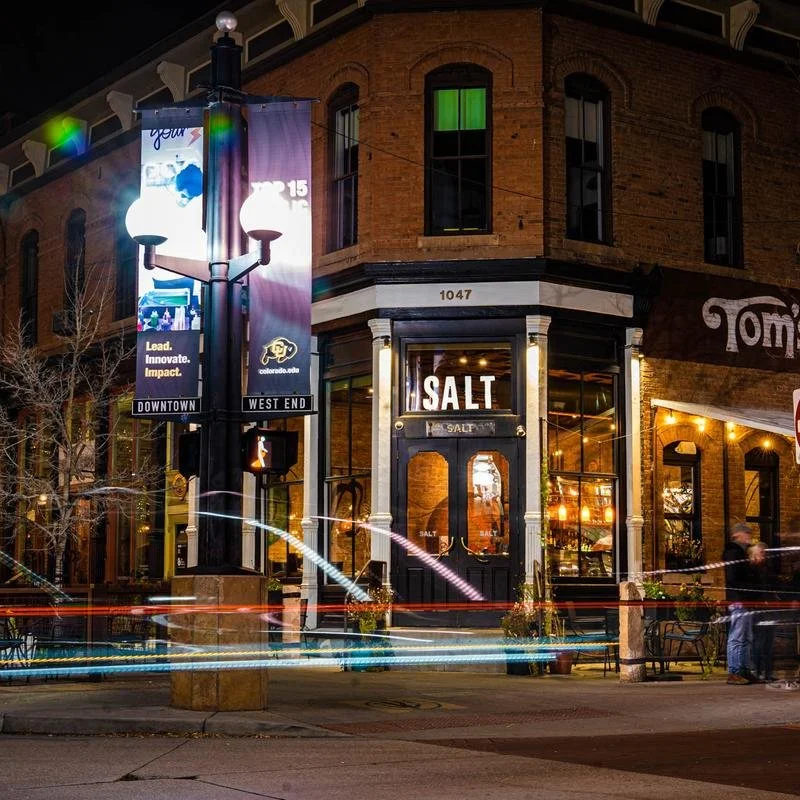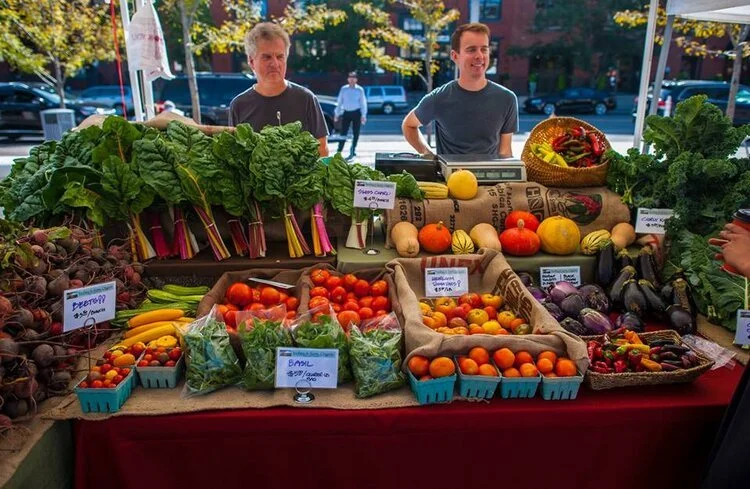From Plowing to Chowing
March 7, 2024
Harvesting Crops, saltboulder.com
The newly grown harvest is ready to be picked and collected. As the restaurant started to prepare for its fresh delivery of products, they were suddenly filled with alarm when receiving pressing news. The grounds were covered in snow and lined with frost, which meant that the season for tomatoes was going to be cut short. This leaves restaurant owners with the decision to stay true to their values or go to large factory imports to fill the missing products.
“You try and pivot as best you can and see what they have,” said Jordan McMahan, “A lot of times, farmers will have something similar and if they do, obviously, we want to go that route.”
Jordan McMahan is a passionate chef, restaurant entrepreneur, and current assistant manager of SALT. Credited for its farm-to-table practices, SALT is a well-known restaurant here in Boulder, Colorado. It is one of many establishments that has made a name for itself while still following the principles of what eco-friendly services are. McMahan explained that although availability is one of the most challenging aspects, staying true and building communities around what it means to be sustainable is one of their main goals.
While being a seasonal ingredient-based restaurant, McMahan and the staff continue to uphold their practices by keeping the menu frequently updated. This ensures that the restaurant stays up to date with the local farmers' crops, adjusting accordingly.
SALT Front, saltboulder.com
Although locally sourced products result in a menu that is constantly changing, SALT can come up with intricate and changing menus that keep customers involved. The owner and chef, Brad Heap, is passionate about giving back to the community through his food. He takes part in events such as the Boulder Film Festival’s CineCHEF and is working on a new regenerative farming film that will be displayed in the coming months.
With Heaps knowledge and passion, he creates an environment that focuses on being sustainably friendly, modern, and community incorporated.
“Our owners are really big on leaving the world a better world for his kids,” said McMahan, “And that's kind of where a lot of his passion comes from.”
Farm-to-table practices allow restaurants to stray away from big corporations like Sysco or PepsiCo. One of the largest reasons for being locally sourced is simply the quality. Not only are products sprayed with harmful toxins such as malathion or glyphosate but are kept for longer than the typical human may know.
“It’s something like the average apple has been sitting on a shelf for over a year,” said McMahan.
The food's quality affects the flavor of the dish, but also the health benefits and the carbon footprint. Being a locally sourced restaurant means you are helping the local economies. By supporting these farmers, these places can grow their business and their own. SALT and other local restaurants work with farms in the Boulder area to help reduce their carbon footprint and create these vibrant restaurants.
One of the largest reasons for being eco-friendly is its carbon footprint. Climate change is a continuing issue in the food and agriculture industry. According to the National Library of Medicine, industrial farming companies use copious amounts of fossil fuels, water, and land in unsustainable ways. By supporting local sustainable farms, owners like Heap know exactly the process being used on their products. McMahan said that there are tight relationships between the farmers and restaurant owners. Trusting your supply is crucial when it comes to farm-to-table as it is the foundation of their meals. Local farmer, Christian Toohey is the owner of Toohey and Sons Organic. Located in Boulder County, they provide fresh grown seasonal products ranging from spring lettuce mixes to pumpkins in the cooler months of October and November.
Toohey and Sons Farmer’s Market, tooheyandsons.com
Another way Toohey continues to give back and supports the community as a local supplier, is the Farmer’s Market. Farmer’s Markets host vendors from all around the local area to sell their produce and crops. Any local business or farmer can take part and that is another way they make a large amount of their commission. These markets are held from the months of April to November. During these periods is where chefs like Heap also obtain their produce. McMahan said that Heap is known to walk down to the farmers market during the day to pick up ingredients they might need. Having short distances between the restaurant and the source reduces their carbon footprints.
Boulder is a hub for active, food, and health enthusiasts. There are multiple sustainable food destinations and more keep developing. Local students are able to utilize Boulder’s resources like Giovi Suarez. A Boulder native, Suarez often visited the farmers market when she was younger. Suarez said that it was a recurring weekend activity her family would do.
“It was always so convenient,” Suarez said, “We were always picking out fresh fruits and vegetables.”
She continues to go throughout her college experience, explaining how it is a nice Saturday activity her and friends enjoy.
Sustainable farming and food practices allow the people of Boulder to stay connected throughout the community. Intertwining long-term goals of climate change, health, accessibility, and a zero-waste ecosystem help increase the funding and practice of these movements. Restaurant owners such as Brad Heap and Jordan McMahan continue to show their passion and interest in the health of the world through food and connectivity. The modern food systems continue to innovate new ways that overall, are saving the earth



